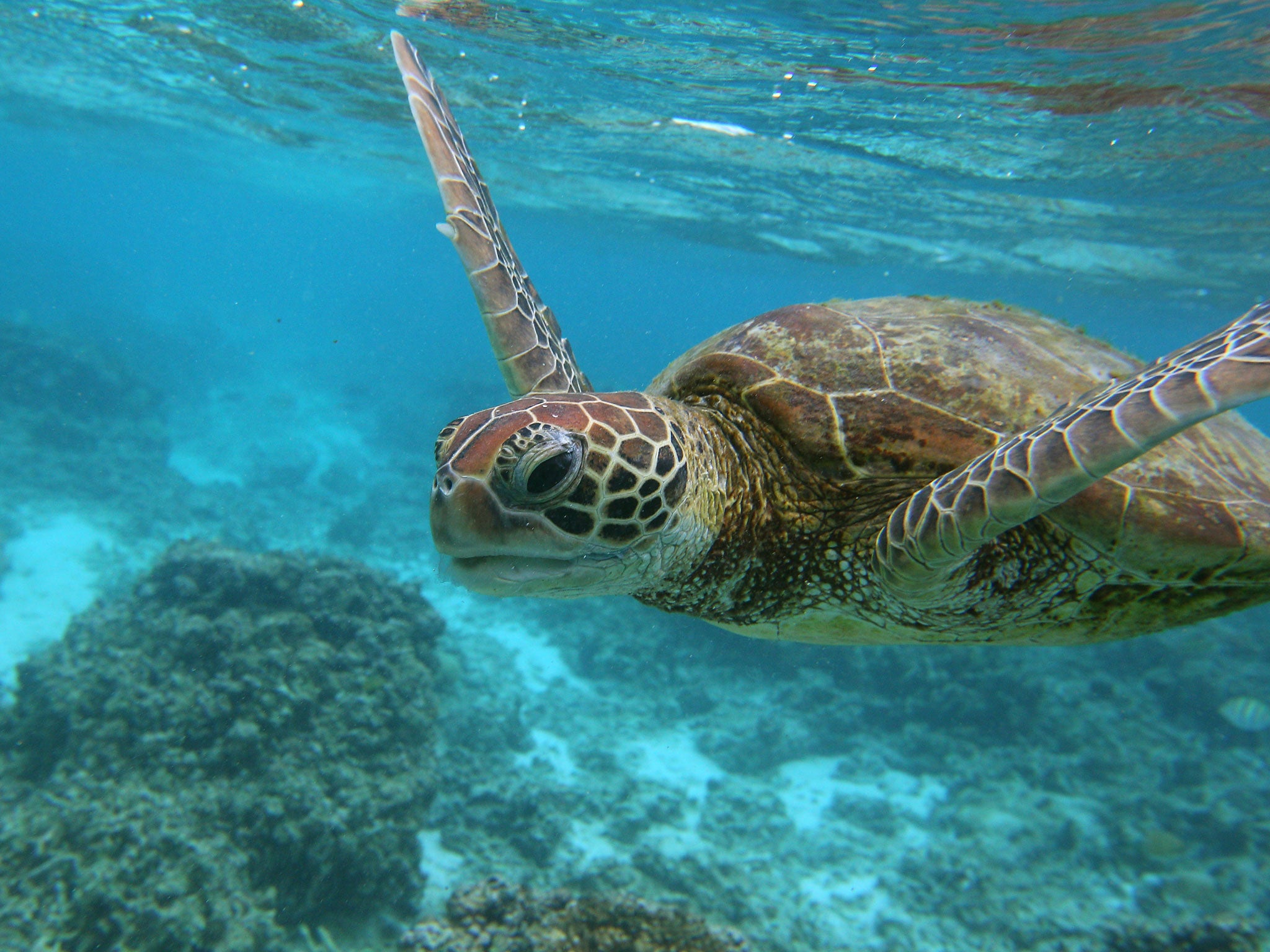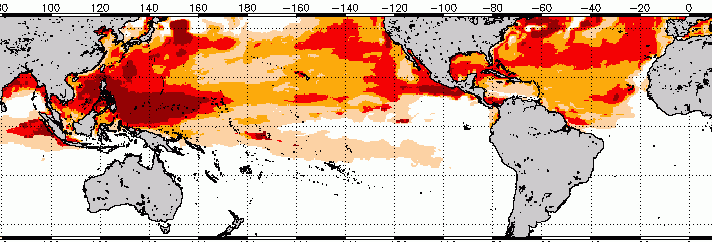Coral reefs face 'unprecedented global bleaching' for third year in a row
Scientists urge world leaders to take action to protect reefs amid the 'longest and most widespread coral bleaching event on record'

A vast area of coral across the northern hemisphere is facing the third year of an “unprecedented global bleaching event”, a US government agency has warned.
The National Oceanic and Atmospheric Administration (NOAA) is forecasting that sea temperatures in much of the Pacific, Atlantic and Indian Oceans could reach the point where significant bleaching of corals takes place this summer.
A map showing the areas most at risk suggests the western Pacific, the seas off the west coasts of the US and Mexico and the Canadian and north-east US coasts will be hardest hit.

In May, researchers who surveyed the Great Barrier Reef off Australia’s east coast reported they had found about a third of the coral in the northern and central sections was either dead or dying.
Concern is growing about coral’s ability to withstand the effects of climate change as the world’s oceans get warmer.
In a statement, NOAA said: "This third global coral bleaching event began in mid-2014 is ongoing. Global warming, coupled with an intense El Nino [weather event], continues to make this the longest and most widespread coral bleaching event on record."
Corals provide a habitat for a large range of marine creatures and are estimated to be worth about £20bn a year to the global economy because of their effect on fishing, tourism and coastal protection, according to conservation campaign group WWF.
Jennifer Koss, director of NOAA's coral reef conservation program, called for more action to protect reefs.
“It's time to shift this conversation to what can be done to conserve these amazing organisms in the face of this unprecedented global bleaching event,” she said.
“We have boots on the ground and fins in the water to reduce local stressors. Local conservation buys us time, but it isn't enough.
“Globally, we need to better understand what actions we all can take to combat the effects of climate change.”
The NOAA Coral Reef Watch found there was a 90 per cent chance of widespread coral bleaching in the island nations of Palau and Micronesia if La Nina weather conditions, which can cause high ocean temperatures in the western Pacific, develop this year as expected.
Reefs in Hawaii, Guam, the Northern Mariana Islands, Florida Keys, US. Virgin Islands and Puerto Rico and the Flower Garden Banks National Marine Sanctuary, 100 miles off the coast of Texas in the Gulf of Mexico, are also expected to be hit.
However bleaching does not always lead to the death of corals with healthy reefs able to recover, particularly if ocean temperatures return to something close to normal reasonably quickly.
While a third of the northern section of the Great Barrier Reef was dead or dying, about 93 per cent of the whole reef had experienced bleaching as of this April.
The 13th International Coral Reef Symposium, involving 2,500 scientists from 70 different countries, is currently underway in Honolulu.
Previously these meetings, held every four years, focussed on scientific research but this year’s event will instead concentrate on policies that could help coral reefs to survive.
“While scientific knowledge about coral reefs and their structure, functioning and responses to stressors has increased exponentially over the past few decades, the state of reefs globally has declined during this period, at a comparable rate in many places,” the meeting’s website says.
Speaking in a video ahead of the event, Professor Bob Richmond, director of the Kewalo Marine Laboratory at Hawaii University, said three main reasons for the global decline of coral reefs had been identified.
“Certainly climate change is the 800-pound gorilla in the room,” he said.
“[The second reason] is land-based sources of pollution and Hawaii is kind of the rogues’ gallery of how not to treat land when you are adjacent to a coral reef, and the third one is overfishing – that’s really important in the entire dynamic.”
Join our commenting forum
Join thought-provoking conversations, follow other Independent readers and see their replies
Comments
Bookmark popover
Removed from bookmarks